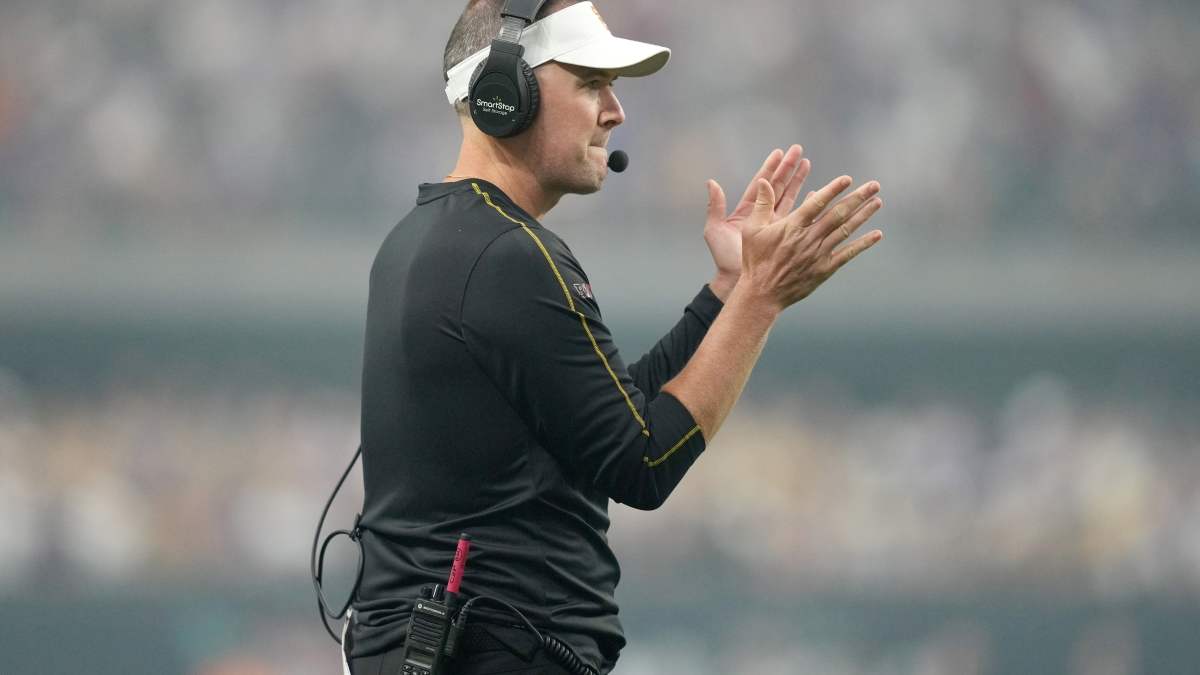There have been difficulties in USC’s recruitment process, especially when it is up against programs that are powerful and draw top athletes.
In an evolving landscape of college football where team culture is becoming as critical as individual talent, Lincoln Riley, head coach of the USC Trojans, is making it clear that he prioritizes finding the right players over merely recruiting those with impressive resumes.

This approach demonstrates a nuanced understanding of team dynamics, especially in light of today’s NIL (Name, Image, and Likeness) environment, where the stakes in recruiting have surged significantly. EMPHASIZING CULTURE OVER STAR POWER Riley’s recent comments underscore his intention to forge a team that is cohesive and aligned with specific goals, stating, “We’re bringing in the right guys from the portal, not just the right body types or the right experience level.” This perspective is particularly noteworthy as the Trojans refresh their roster through the transfer portal.
It indicates a shift from the traditional focus on standout statistics to a comprehensive evaluation of player mentality and team compatibility. One player exemplifying this philosophy is Gavin Meyer, a defensive lineman whose impressive performances have made him a sought-after addition.
Despite being a late entry into the portal, Meyer managed a run grade of 77.7 and a pass rush grade of 63.1 over 497 snaps, showcasing his capability against tough competition. Riley and his staff believe that Meyer’s attributes-particularly his team-first mentality-will enable him to adapt quickly and contribute effectively on the field, reinforcing the notion that culture-fit is of paramount importance. RETHINKING RECRUITMENT IN A CROWDED FIELD The recruitment cycle for USC has seen its share of challenges, particularly as it competes against powerhouse programs known for attracting elite talent.
With only three blue-chip commitments from California’s 33 prospects in the current class, there is a clear recognition that the Trojans need to re-strategize. While NIL deals play a role in the recruiting process, Riley believes that a comprehensive approach, combining high-quality coaching with team chemistry, is key to fostering success. This strategy not only puts an emphasis on individual growth but also challenges recruits to embrace a culture grounded in mutual success rather than personal accolades.
Riley’s insistence on prioritizing team-first players illustrates a broader trend in the collegiate landscape, where teams cannot merely rely on star power to achieve success. THE FUTURE OF USC FOOTBALL With USC’s relocation to the Big Ten on the horizon, the pressure is mounting for Riley to change the narrative surrounding his recruiting efficacy. The potential for a strong on-field performance is pivotal, as it serves to attract high-caliber prospects who desire to compete at the highest level.
As Riley continues to shape this new roster, his emphasis on cultural fit and the development of a cohesive team identity will likely serve as critical factors in his efforts to elevate USC’s standing. As college football continues to evolve, Riley’s focus on the right cultural fit and team cohesiveness may well become a blueprint for success that others will emulate.











